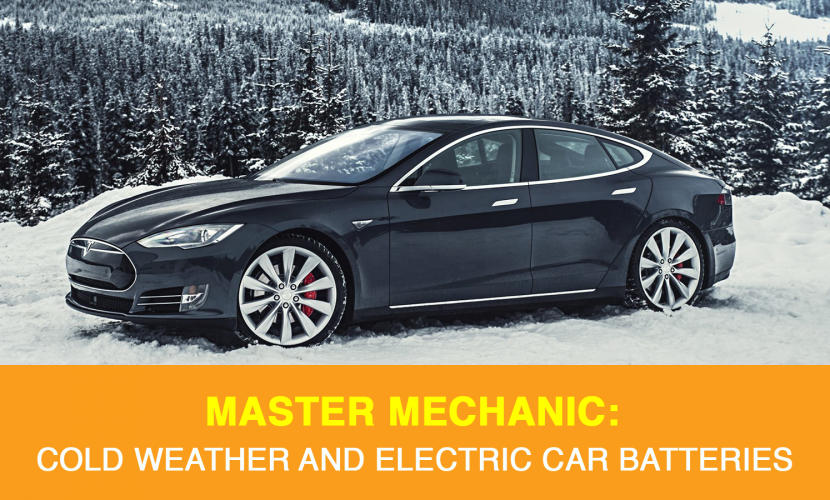
Master Mechanic: Electric Car Batteries in Cold Weather
At Master Mechanic, we’ve seen an influx in consumers with electric vehicles in the last couple of years. That’s because electric vehicle purchases are at an all-time high in North America. With the increase in education around green transportation consumers are attracted to the promise of a reduced carbon footprint, making electric cars more appealing than ever.
There could, however, be a costly downside for electric vehicle drivers commuting in extreme cold. We caught up with a Master Mechanic to discuss the impact of cold weather on electric car batteries.
Extreme Temperatures Hit Electric Vehicles Extra Hard
With the increase of electric cars in the market, more research is being conducted on how these cars hold up in the cold. New research conducted by AAA points to the efficacy of electric car batteries and the results conclude that the range of these batteries is tied directly with the external temperature. Research shows that the optimal temperature to get the most out of your EV battery sits at around 21°C with battery power decreasing considerably as the temperature lowers. According AAA’s study, when temperatures drop below -7°C the average driving range of an electric car decreases by as much as 41%! For many motorists in Canada, this could cast some doubts about making an electric car purchase. When you add to this the fact that you’ll be making more trips to charge your drained battery, the cost can really start to add up.
In their study, AAA tested a range of electric vehicles on the market including the BMW i3, Nissan Leaf, Chevy Bolt, the Volkswagen e-Golf and the Tesla Model S. The test included a simulation that mimicked real-world driving, including extreme temperatures at both ends of the spectrum. The tests were conducted with and without the use of internal climate control systems, and then compared with normal driving conditions. The impact on the driving range was pretty consistent across all of the vehicles that were tested, proving the direct impact that cold temperatures have on electric car batteries.
If you are considering purchasing an electric vehicle, battery drain from frigid temperatures isn’t the only thing you need to worry about. As temperatures hit both ends of the spectrum, the use of air conditioning and heat will also increase your costs because they drain your car battery more quickly, too.
Electric Vehicles Continue to Improve
As the EV market develops, consumers continue to face the dilemma of whether or not these cars can work for their needs. This applies especially to regions that experience extreme temperatures. In many of these areas, car ownership is a necessity to get around, and needs to be reliable all year long. Electric vehicles are definitely the future, but those of us living in extreme cold must consider the wear and tear of the winter, and the associated maintenance and performance hurdles.
We’re still in the fledgling years of the electric vehicle market and many current drivers of EV are still considered to be early adopters. Electric vehicles promise to help reduce the carbon footprint left by commuters–and they’re doing just that. Like any other innovation, improvements in EV technology will continue to surface as the market becomes increasingly competitive.
Fortunately for consumers, more than ever, we have a seat at the table when it comes to how our favourite products are made. There’s no doubt that car manufacturers are paying close attention and making necessary changes to their upcoming electric vehicles.
If you have any questions about your car’s battery, electric vehicles, or how to best maintain your vehicle in extreme weather, contact your local Master Mechanic today! We’re always happy to help.

